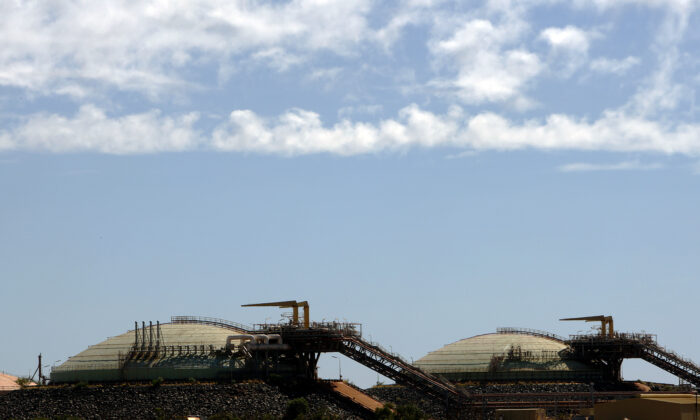Japan Emerges as a Strong Rival to Australia in the LNG Market
Japan’s domestic LNG demand has fallen 25 percent since 2014 and may drop by another 25 percent by 2030.
Japan, Australia’s largest liquefied natural gas (LNG) export customer, is reducing its purchases from Australia due to lower domestic demand and increased power generation from alternative sources, according to a global think tank.
“Japanese companies are now actively cultivating LNG demand in emerging Asian markets where they resell LNG and sell gas infrastructure and services,” said Amandine Denis-Ryan, the CEO of Australia’s Institute for Energy Economics and Financial Analysis (IEEFA) which examines issues related to energy markets, trends, and policies.
“Effectively, Japan is becoming a competitor to Australian LNG producers for sales opportunities in those markets.”
The institute reports a 25 percent decline in Japan’s LNG demand since 2014, with another 25 percent decrease expected by 2030.
“This means they don’t need all the gas they have bought from us and others,” Ms. Denis-Ryan said.
The institute attributes the decline in LNG demand to lower power demand, rising nuclear availability, and higher generation from renewable resources.
Meanwhile, Japan’s strategic energy plan aims for a significant reduction in LNG-fired power generation by 2030, further reducing LNG imports from Australia.
The Japanese government’s Sixth Strategic Energy Plan aims for a 53 percent reduction in LNG-fired generation from 3954 terawatt-hours (TWh) in 2019 to 187 TWh by 2030, which will further decrease LNG imports between 25.7 and 31.6 million tons per annum from 2019 levels.
From Importing to Trading
As Japan experiences an LNG surplus, it is reselling its gas across Southeast Asia, particularly in Bangladesh, Indonesia, the Philippines, Singapore, and Vietnam, where Japanese utilities are investing in gas infrastructure.
Moreover, Japan is encouraging its companies to trade LNG instead of solely importing it.
Japan’s Ministry of Economy, Trade and Industry is urging its companies to sell 100 million tons of LNG by 2030.
IEEFA noted that Japanese companies sold more gas than the total LNG imports from Australia, amounting to more than 30 million tons from 2020 to 2022.
JERA, one of the world’s largest LNG importers based in Japan, previously acknowledged the country’s shift from importing LNG to trading it.
“Japan may not need LNG for 20 years … but other Asian countries need to replace coal with something and LNG will play an important role,” JERA CEO Yukio Kani said in an interview with Reuters.
IEEFA’s commentary comes after the Australian government released its Future Gas Strategy last week, emphasising its role as a reliable trade partner for LNG, claiming that Australia will continue helping its trade partners achieve net-zero emissions.
Meanwhile, IEEFA expects the world to face an LNG oversupply in the coming years.
Due to a surge in new projects coming online, capacity is set to increase by 40 percent by 2028 while demand is forecasted to decline, especially in markets where LNG consumption is typically high.
Most of these new projects will be constructed in Qatar and the U.S., both of which have lower production costs than Australia.
LNG Markets Undergoing a Pivotal Transformation, Says Expert
“Global LNG markets are at a turning point. An unprecedented wave of new LNG projects are coming online at the same time as demand from major LNG buyers is declining,” Joshua Runciman, IEEFA’s Lead Analyst for Australian gas said.
“As a result, we are expecting an LNG supply glut to form in the coming years.”
Australia’s Future Gas Strategy involves the development of new gas fields to underpin its race to net zero by 2050.
The strategy highlights the importance of the Scarborough LNG project in Western Australia and the Beetaloo Basin in the Northern Territory.
However, these projects still require approval and face opposition from environmental advocates.
Minister for Resources Madeleine King emphasised that Australia’s trade partners rely on Australian gas to facilitate their transition their economies.
“Our trade partners have made large investments over decades in Australia’s resources industry and are relying on Australian gas to transition their economies to net zero,” Minister for Resources Madeleine King said.
Wood Mackenzie added that the strategy may lower perceptions of “sovereign risk” for investors but noted that challenges remain in attracting investment to Australia’s gas sector.
“A turnaround in sentiment will not be quick. In parallel, the government must be seen to support and implement this strategy, and back away from hasty interventions,” said Wood Mackenzie’s research director John Gibb.





